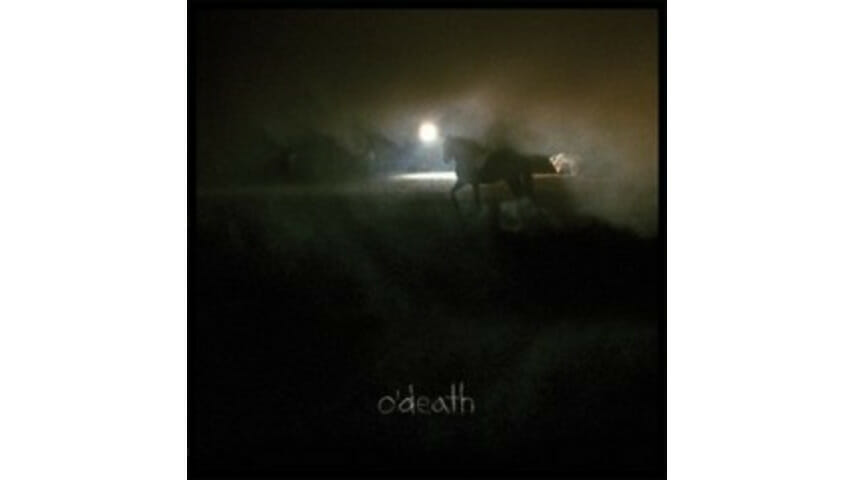O’Death: Outside

The biggest impediment in O’Death’s career is that they hail from Brooklyn instead of some backwoods holler somewhere in the Ozarks. Known for their sweaty, often shirtless live shows, the band mix mountain music with metal and punk, creating darkly atmospheric records that are both Thomas Hart Benton gothic and Hot Topic goth. But because they’re based in a hipster enclave, they’ve been called out as ersatz hillbillies—as if traditionally rural music couldn’t be made in an urban setting. Hell, Woody Guthrie lived in Brooklyn years before O’Death was born, Dylan and other earnest strummers practically reinvented folk music over in the East Village. Geography doesn’t determine authenticity.
-

-

-

-

-

-

-

-

-

-

-

-

-

-

-

-

-

-

-

-

-

-

-

-

-

-

-

-

-

-

-

-

-

-

-

-

-

-

-

-








































